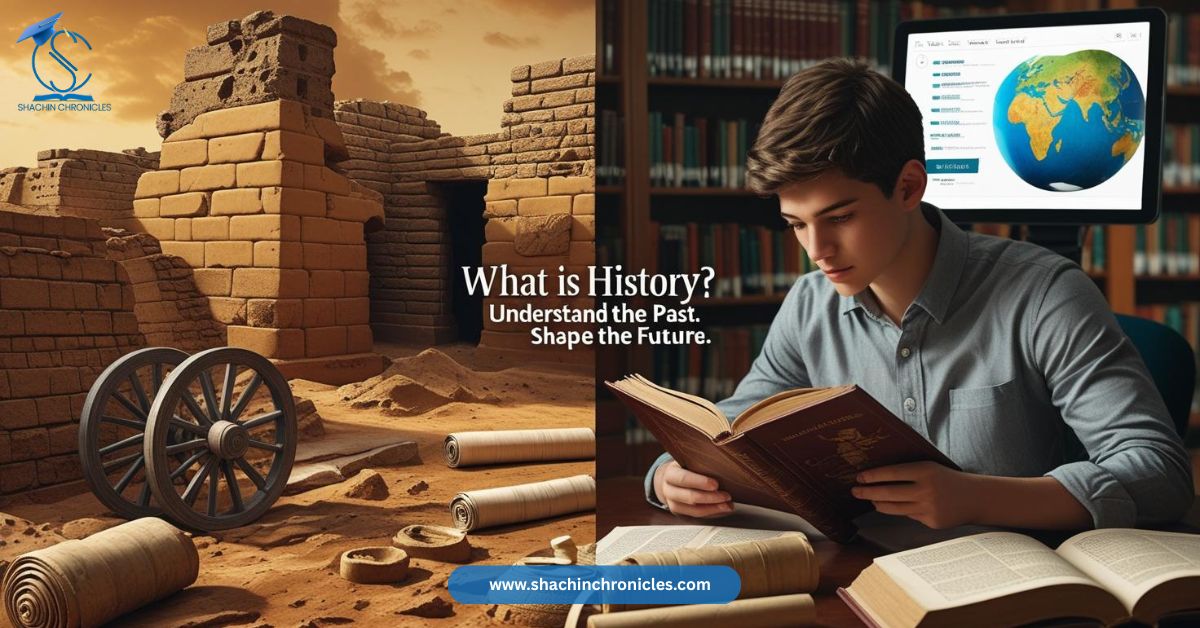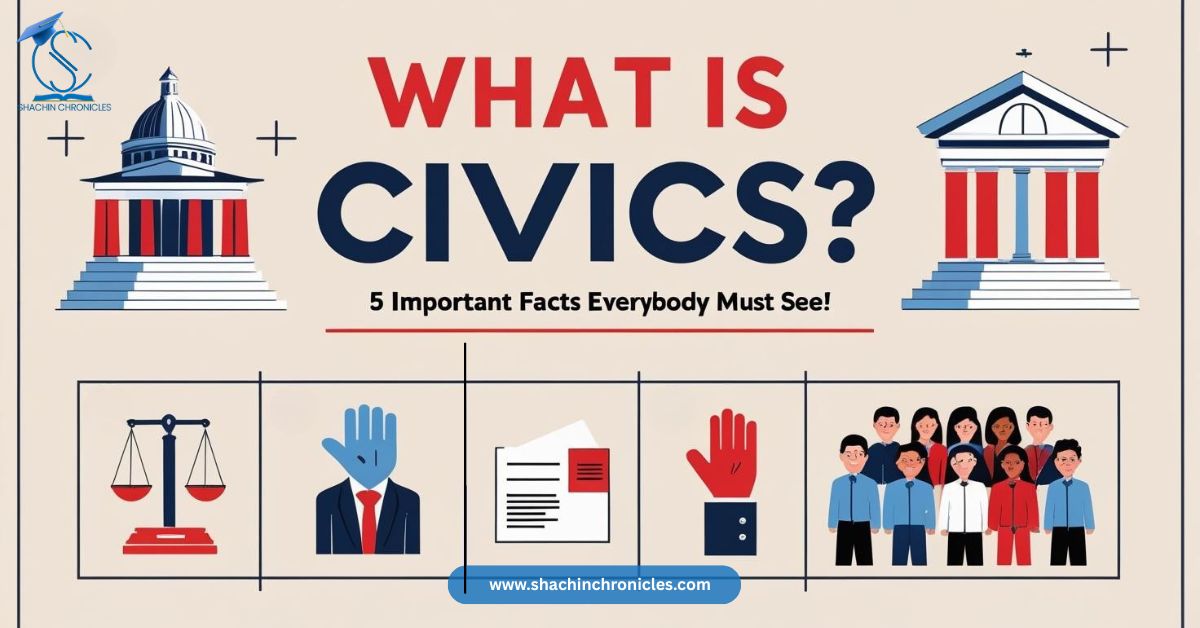History is the study of past events, especially how they are narrated to human civilizations. It contains inspecting and explaining records, antiques, fossils, documents, and other references to conclude how humans survived, what they thought, how society cultures different, and what educations can be learned from the past.
In simple terms:
- History states the story of humankind — from the earliest civilizations and remarkable kingdoms to modern countries and worldwide activities.
- It helps us understand the causes and significances of actions like wars, revolutions, discoveries, and cultural changes.
- Awareness into human behaviour, choices, and associations over time are also provided through past events.
- The word “history” derives from the Greek word historia, meaning analysis or information learned by research and exploration.
📜 What Is History?
History is the systematic examination of the past, focusing on human affairs crossways time. It consists of the important events or occasions from political occasions, battles, and revolutions to cultural actions, scientific discoveries, and daily existence.
It does not only involve remembering dates and occasions—it’s about understanding how and why things happened and what influence they had on people and civilizations.
🔍 Key Aspects of History
- Occasions – Most important incidents like battles, agreements, discoveries, migrations, natural disasters, etc.
- People – Powerful people such as leaders, philosophers, artists, and everyday residents who designed their societies.
- Locations – Geography plays a significant part in history, as to shows how civilizations advance and communicate.
- Eras – Past events is frequently categorized into eras such as ancient times, medieval period, modern eras, and contemporary style.
- Origins – Historians investigate primary sources such as manuscripts, letters, antique coins, monuments, whereas secondary sources such as books, articles, etc, to rebuild history.
🎯 Why Is History Important?
- Gives us individuality – Supports respective nations, societies, or any communities, and people who appreciate their living or cultural roots.
- Offers guidance – reduces the risk of repeating historical faults such as battles, judgments.
- Enlightenment modification – Illustrate how and for what reasons societies refined.
- Boosts problem solving – Motivates investigation or study, clarification, and inspection of evidence.
🏛️ Divisions of History
- Importance of Political – Direct attention on political leaders, laws, governments, and battles or wars.
- Impact of Social – Examine everyday social life, taxes, family, and class structures.
- System of Economics – Aspects of trade, labour, industry, monetary and economic systems.
- Respect of Cultural – Inspections principles, beliefs, art, literature, and civilizations.
- History of Environmental – Discovers the association between humans and nature gradually.
In Short:
History is a reflection that guides us to understand the current life and prepare for the future. So, it is not just about the past, but also guidance for the future.
🌍 The Story of the Wheel
1000s of years before, early people sustained themselves by hunting and gathering. And when they slowly-slowly started agriculture and residing in villages, they required better options to transfer things such as tools, veggies, water, and food.
Somewhere in 3500 BCE, in Mesopotamia (present-day Iraq), the wheel was discovered by man, and it was one of the greatest significant and purposeful discoveries in our history.
The wheel was primarily used for the production of pottery, such as ceramic vessels, at the initial stage. Afterwards, it was attached to carts and chariots. And after this change, transportation became easier, quicker, and more effective. It helps our trade grow, connections between cities, and even soldiers move swiftly.
💡 Why This Story Matters Today
- The invention of the wheel established the framework for modern transport, machines, and not only that also airplane engines.
- It represents how a modest idea can revolutionize the world.
- It refreshes memory that invention and innovative thinking have always been a part of social history.
So, whenever you see any transport or vehicle or a rolling suitcase, you’re looking at something that began over 5,000 years ago or during early civilizations. That’s how the past is connected to our present through history.

